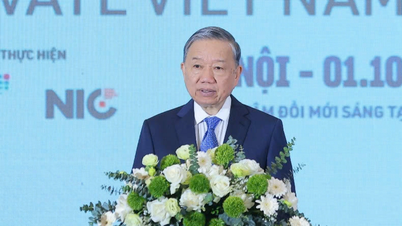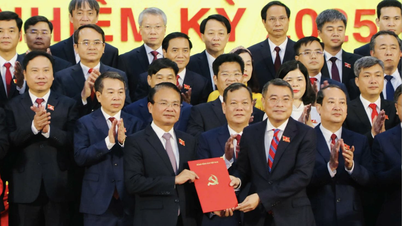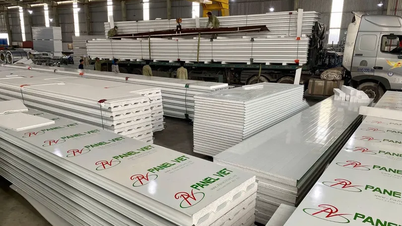These challenges not only come from internal factors of enterprises but also from issues related to institutions, policies and requirements from international markets. Accordingly, experts have pointed out 5 main barriers in implementing ESG in Vietnam.

According to Associate Professor Dr. Nguyen Hong Quan, Director of the Institute for Circular Economic Development, Vietnamese enterprises are facing a lack of clear and consistent regulations on ESG. This leads to a situation where enterprises cannot apply a common and transparent system of standards when implementing ESG, making it difficult to measure and report results. Therefore, enterprises lack clear guidance on official requirements and standards for measuring the effectiveness of ESG commitments.
In a new study published in the journal Finance Research Letters, lecturers from RMIT University Vietnam also pointed out that when directors participate in too many boards, they may lack independence in monitoring and evaluating ESG commitments, reducing the effectiveness of ESG implementation.
Dr. Pham Nguyen Anh Huy, Senior Lecturer in Finance at RMIT Vietnam, said: “This study is a wake-up call. Vietnamese businesses need to balance the board’s network of relationships with independence and commitment. A director holding too many positions can reduce the ability to monitor and respond to ESG issues, especially in the context of increasing reputational risks.”
To promote ESG, experts recommend the need for a more synchronous and transparent legal framework, helping businesses confidently implement sustainable development strategies without facing uncertainty from legal regulations.
In addition, an equally important factor is the lack of commitment from senior leaders. Deputy Minister of Industry and Trade Phan Thi Thang pointed out that strong commitment from senior leaders is a decisive factor for effective ESG implementation. However, in reality, many executives still do not consider ESG as a long-term strategy but only see it as part of corporate social responsibility. This lack of commitment causes ESG strategies to not be implemented synchronously and lacks the necessary investment in finance and resources.
This is one of the main reasons why many businesses have not made real changes in their production and business activities to meet ESG commitments. Associate Professor Dr. Nguyen Hong Quan also emphasized that the lack of leadership and commitment from directors will make it difficult for businesses to implement sustainable development strategies and environmental protection in a real way. Therefore, businesses need to raise the awareness of their leadership about the importance of ESG, thereby being determined to implement and ensure success.

Third, it is difficult to apply the circular economy model. This is an important factor in implementing ESG, but the transition to this model in Vietnam is still facing many difficulties. The main reason is that businesses do not have enough finance and technology to implement sustainable initiatives.
According to Associate Professor Dr. Nguyen Hong Quan, the lack of financial mechanisms to support the transition to a circular economic model has prevented many businesses from investing in green technology and resource-saving solutions. Businesses want to implement ESG but do not have enough resources to develop recycling, energy-saving or waste management technology.
In addition, businesses also face a lack of awareness of the long-term value of the circular economy model, leading to their unwillingness to invest in sustainable solutions because they believe that short-term benefits will be affected. Therefore, the lack of financial support mechanisms and policies from the State makes it difficult for businesses to implement ESG commitments.
Fourth, it is the demand from international markets. At the Green Trade 2025 Forum, Mr. Nicolas Lockhart, representative of the World Trade Research Institute (USA) pointed out that Vietnamese enterprises are facing increasingly strict requirements from international markets.
Specifically, businesses exporting to the EU must ensure information transparency and compliance with ESG standards, including full reporting on the environmental and social impacts of their products. Businesses must demonstrate that their products meet strict sustainability requirements, and failure to comply could result in the product being removed from the market.
The EU’s Carbon Border Adjustment Mechanism (CBAM) requirements have posed a major challenge to Vietnamese businesses, requiring them to reduce carbon emissions during the production and supply of products. This requires businesses to invest in new technological solutions and optimize production processes to meet the requirements of international markets.

Finally, to successfully implement ESG, there needs to be cooperation between the government, businesses and the community. Mr. Tang Huu Phong, Deputy Head of the Propaganda and Mass Mobilization Department of the Ho Chi Minh City Party Committee, emphasized that local authorities play a very important role in supporting businesses in implementing ESG. The government needs to create policies to support businesses, including providing capital, technology and preferential tax policies to promote green transformation and sustainable development.
In addition, coordination between authorities and community organizations is also necessary to create a favorable environment for businesses to implement ESG strategies. Only when all parties participate can ESG truly come into practice and create long-term value for the Vietnamese economy.
Source: https://doanhnghiepvn.vn/doanh-nghiep/nhieu-rao-can-voi-doanh-nghiep-viet-nam-khi-thuc-hien-esg/20250707084211668






![[Photo] Hanoi morning of October 1: Prolonged flooding, people wade to work](https://vphoto.vietnam.vn/thumb/1200x675/vietnam/resource/IMAGE/2025/10/1/189be28938e3493fa26b2938efa2059e)






























![[Photo] Panorama of the cable-stayed bridge, the final bottleneck of the Ben Luc-Long Thanh expressway](https://vphoto.vietnam.vn/thumb/1200x675/vietnam/resource/IMAGE/2025/9/30/391fdf21025541d6b2f092e49a17243f)
![[Photo] President Luong Cuong receives President of the Cuban National Assembly Esteban Lazo Hernandez](https://vphoto.vietnam.vn/thumb/1200x675/vietnam/resource/IMAGE/2025/9/30/4d38932911c24f6ea1936252bd5427fa)


























































Comment (0)